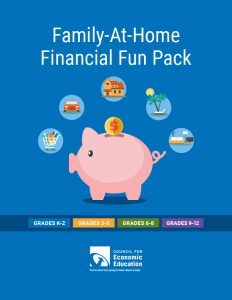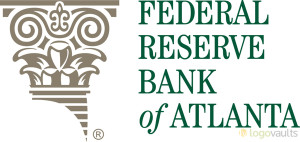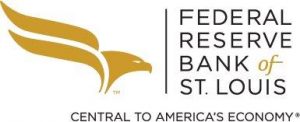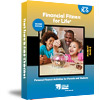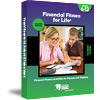Resources
Below you will find tools that will assist you in teaching MCEE curriculum in the classroom.
- College and Career Readiness
- Compound Interest Calculator
- Curriculum Evaluation Rubrics
- EconEdLink
- Econ Kahoots
- Family-At-Home Financial Fun Pack
- Family Financial Fun Night (DIY Version)
- Federal Reserve Bank of Atlanta
- Federal Reserve Bank of St. Louis
- Financial Fitness for Life (FFFL)
- Financial Literacy for After-School Programs
- Foundation for Economic Education
- iNSPIRE Lesson Plans and PP Presentations (6-12)
- MS Economics Standards
- MS Personal Finance Standards
- Never Too Young: Personal Finance for K-5 Learners
- NextGen Personal Finance (NGPF)
- ReadyAssessments
- SmartPath
- Stock Market Game
- Striking the Right Chord: Careers in the Music Industry
- Student Course Shells
- Teacher of the Year
- Virtual Economics 5.0
- Why Teach Economics in Elementary School
College and Career Readiness
The Mississippi College and Career Readiness course (CCR) was developed to support the vision and mission of the Mississippi Department of Education that all students graduate from high school prepared for college, career, and active citizenship. The CCR course curriculum outlines the knowledge secondary students should obtain and the types of skills relevant for a successful transition to postsecondary and the workforce.
FAQs for the CCR Course
- Is there a CTE MSIS course code for the CCR course? No, only academic course codes are available.
- Is there a separate teacher endorsement for the CCR class? Any teacher with a valid 7-12 license may teach the CCR course.
- When is this class required for graduation? The CCR class is required for the graduating class of 2022.
Please contact Heather Morrison (hmorrison@mississippi.edu) with any additional questions.
Resources
- 2020 College- and Career-Readiness Course Curriculum
- CCR 2020 Virtual Training PowerPoint
- CCR 2020 Virtual Training PowerPoint Recording
- Get2College
- College and Career Teacher Canvas Course -access to suggested lessons, student activities, etc. To be added to the College and Career Readiness Teacher Canvas Course, please email your request to: hmorrison@mississippi.edu.
- MS Council on Economic Education: https://mscee.org Subscribe to email updates for information about upcoming Master Teacher of College and Career Readiness workshops.
Approved CCR Course Substitutions and Course Sequencing
The purpose of the College and Career Readiness Course is to provide planning and instruction for postsecondary transition. The following courses are approved substitutions for the CCR course:
- Career and Technical Work Based Learning Course
- Dual Credit SmartStart
- JROTC III and IV
- Advanced Placement Capstone: Completion of both AP Seminar and AP Research or equivalent International Baccalaureate and Cambridge International Courses
- Freshman, Sophomore, Junior and Senior College and Career Readiness Seminar courses for Early College High Schools.
*Additional requests for substitution must be submitted to the Office of Secondary Education for review and approval.
The CCR course may be taught in one of the following sequences:
- Senior year only
- Junior year only
- 1 semester in the junior year with the remaining semester taught in the senior year
- 1 semester in either freshman or sophomore year with the remaining semester taught in junior or senior year
Click here to return to the top.
Compound Interest Calculator
The Compound Interest Calculator visually shows students the dramatic affect that compounding can have on investments. This interactive can be used to supplement multiple lessons within the Learning, Earning and Investing publication.
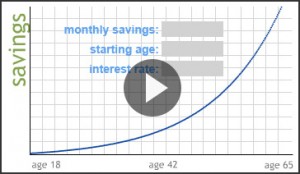
Curriculum Evaluation Rubrics
Choosing economics and personal finance curriculum materials for classroom use can be challenging. Do the lessons, videos and textbooks employ good pedagogical techniques? Is the economic and personal finance content accurate? Are the materials standards-based? Are they grade-level appropriate? The National Association of Economic Educators (NAEE) has created a set of evaluation rubrics that can help you select the best economics and personal finance curriculum materials for you school district, school, or classroom. These rubrics are free for you to download and use. They are aligned with the Council for Economic Education Voluntary National Standards in Economics and National Standards for Financial Literacy, and they were tested by educators from throughout the country. There’s also a glossary of economics and personal finance terms to help you judge content accuracy. Click here to access the rubrics.
PAST CURRICULUM AWARDS:
Economics and Art: Making the Connection
Christy Walker, 2017
EconEdLink

What is it?
EconEdLink provides a premier source of classroom-tested, Internet-based economic and personal finance lesson materials for K-12 teachers and their students. With over 435 lessons to choose from, teachers can use as many of the lessons as they would like and as often as they would like.
Who is it for?
The Internet-based lessons are targeted for K-12 teachers and their students. Each of the lessons includes a teacher’s version as well as a student’s version. Each of the lessons are designed to be delivered in a variety of formats and classroom settings.
How do I use it?
All of the lessons are Internet-based and free to everyone. Each lesson contains a teacher’s version as well as a student’s version which can be used in a variety of ways.
For more information and to access lessons visit: http://www.econedlink.org/
Econ Kahoots
Kahoot! is a game-based learning platform available at no-cost for educators. Each Kahoot! is a multiple choice quiz that allows instructors to review student knowledge or break from the traditional “chalk and talk” lecture. Kahoots can also be used as a basis for formative assessment. Quizzes can be accessed by students on a tablet, phone, or computer, but are designed in such a way that encourages social learning so that students must frequently look up from their devices.
For more information visit: https://econkahoots.com/
Family-At-Home Financial Fun Packs
Check out the newly released and free Family-At-Home Financial Fun Pack. Each pack includes materials for kids and their families to use and enjoy on their own.
The packs come in four grade bands: K-2; 3-5; 6-8; 9-12. In these packs you will find family activities, games, worksheets, and suggested books for your students or anyone sheltering together to enjoy and learn from. You can easily select activities to help your students acquire the tools to live a life of opportunity and have some fun along the way.
We hope you will take a moment to share this free resource with your students and their families.
DOWNLOAD THE COMPLETE FAMILY-AT-HOME FINANCIAL FUN PACK
or download by grade level:
Family Financial Fun Night (DIY Version!)
Family Financial Fun Nights are after-school events for elementary school students and their parents/caregivers that teach basic money management skills. The Council For Economic Education and Hands on Banking hold events throughout America, but you can use the FREE resources to run your own! Also available in Spanish!
Click here to return to the top.
Federal Reserve Bank of Atlanta
For more information and to access lessons visit: https://www.frbatlanta.org/education.aspx
Federal Reserve Bank of St. Louis
For more information and to access lessons visit: https://www.econlowdown.org/
Financial Fitness for Life (FFFL)
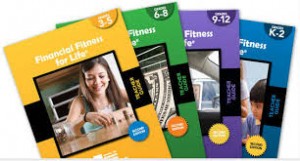
Parent Resources
Financial Literacy for After-School Programs
MCEE has programs that are designed specifically for after-school programs- Elementary, Middle and High School!
Click here to download a flyer.
For additional information on personal finance and entrepreneurship education resources please contact Selena Swartzfager at 601-974-1091 or swartsc@millsaps.edu. The prices on the flyer reflect training and resources for individuals employed by the after school program. If you would like to discuss the cost of bringing in an instructor to work with the students, we can have this conversation.
Foundation for Economic Education
The Learning Center is designed for students and teachers of all ages and features articles, videos, and quizzes all packaged in digestible lessons.
Whether you’re looking to teach or learn how economists think, historical economic events, personal finance, entrepreneurship, or more… there’s a format and topic guaranteed to delight anyone.
Click here to sign up for the Learning Center.
Click here to return to the top.
iNSPIRE Lesson Plans and PP Presentations (6-12)
Developed in partnership with Economics Arkansas by James Wilcox, director of The Hatchery at The University of Southern Mississippi, these lesson plans accompany the “This is Capitalism” video series presented by Stephens Inc.
All lesson plans are available for previewing and downloading at no charge.
Click here to return to the top
MS Economics Standards
The economic strand allows students to grasp economic concepts, as well as an understanding of markets, the U.S. economy in a global setting, and financial literacy to make informed financial decisions throughout their lives. The strand emphasizes economic reasoning through integration into each grade level and course.
Click here to return to the top.
MS Personal Finance Standards
Personal Finance is designed to guide students in financial decision making and real-world financial issues. Topics such as decision making, income earning and reporting, budgeting, buying goods and services, saving, investing, and using credit, will be discussed.
Click here to return to the top.
Never Too Young: Personal Finance for K-5 Learners
This program was developed in response to a growing interest in teaching students about personal finance through settings outside of the traditional school day. The program teaches young students about financial choices, cost‐benefit analysis for purchases, the role of an entrepreneur, and the economics and finances of their individual communities—all with a goal of helping children understand that saving is a good thing for us as individuals and as a nation. The program has two distinctive features that align with CEE’s delivery strategy of providing both content and pedagogy: a 12‐lesson manual and a training component for service providers. Watch the trailer and the full-length video here to learn more about this program.
Access the curriculum at no cost here.
NextGen Personal Finance
NGPF is a free high-school personal finance curriculum and professional development partner helping teachers deliver essential money understanding in an easy-to-grasp, engaging way. We offer a complete course of up-to-date, customizable lessons and activities designed to spark participation and make ideas memorable. Professional development and events build personal connections, enable knowledge sharing, and highlight information teachers find truly useful.
Visit their website for more information and to sign up for a FREE teacher account.
Ready Assessments
ReadyAssessments is an educational technology tool on EconEdLink that gives you access to ready-made economics and personal finance tests and quizzes for K-12 learning. It’s simple to use and it’s FREE!
You get:
- Access to tests featuring over 2,800 questions aligned with personal finance and economics national standards
- Eight nationally normed pre and post tests
- Easy class rostering with class codes
- Auto grading powered by built in gradebook and reports
Learn more about ReadyAssessments by watching our three instructional videos below. You’re only a few steps away from being able to start using this incredible resource in your classroom!
Click here to return to the top.
SmartPath
$martPath is an engaging, interactive and easy-to-use way for teachers of grades 1-8 to embed relevant and fun economic and financial education in their classrooms. Best of all, $martPath is completely free! $martPath provides simple, fun lessons that bring economic and financial education to life in your classroom. $martPath units teach students about personal financial responsibility (such as saving, prudent spending, and prioritizing needs and wants) through grade-appropriate, curriculum-aligned, interactive lessons.
Use this website (both the platform and the videos) in your classrooms and/or share with your parents. $martPath is also well-suited for teachers to deliver the lessons to their students remotely. And parents LOVE it!
Check out the video below for a brief introduction and then visit the SmartPath website to get started: https://smartpathlearning.com/
The videos are also on the PBS Learning Media site.
Click here to download a step-by-step guide to accessing and using SmartPath in your classroom!
Stock Market Game
Resources to help you get started:
SMG Essentials Mini Lessons Videos
Recently updated! Check our this collection of SMG mini lesson videos. Specifically the new SMG Launch video! It’s perfect for teachers to play at the beginning of their session to get students excited about the program.
A one-stop shop for all SMG events including webinars
Click here to return to the top.
Striking the Right Chord: Careers in the Music Industry
In this lesson, students will participate in a “Music Career Party Mixer” where they will take on the role of someone with a specific career in music or a closely related field and talk to other participants with different careers. During this time, they will learn about the many opportunities for careers in music and the skills, education, and other details related to those fields. After the mixer, the students will reflect on what they learned to see connections between things like education and skills to income. As an extension, students can be asked to highlight connections between jobs in the music industry.
Click here to return to the top.
Teacher of the Year
Annually the MCEE chooses one teacher to be the Economics Teacher of the Year. 2024 applications are due by: September 15, 2024.
Previous Winners:
- 2023: Timothy Gardner- Economics Teacher of the Year
- 2022: Alison Moore- Economics Teacher of the Year (HS)
- 2022: Virginia Kittrell- Economics Teacher of the Year (MS)
- 2021: Teena Ruth- Economics Teacher of the Year
- 2020: Buster Doty- Economics Teacher of the Year
- 2019: Julie Ingram- Economics Teacher of the Year
- 2018: Stephanie Campbell- Economics Teacher of the Year
- 2017: Kim Clemons- Economics Teacher of the Year
- 2016: Cindy McMullen- Economics Teacher of the Year
- 2015: Angela Sanders- Economics Teacher of the Year
- 2015: Kenyatta Durr- Personal Finance Teacher of the Year
- 2014: Rebecca Tyndall- Economics Teacher of the Year
- 2013: Deborah Morali- Economics Teacher of the Year
- 2012: Ginger Tedder- Economics Teacher of the Year
- 2011: Eskkellikka Gibson- Economics Teacher of the Year
- 2010: Tommie Gillispie- Economics Teacher of the Year
- 2009: Rush Sweeney- Economics Teacher of the Year
- 2008: Terry Smith- Economics Teacher of the Year
- 2007: Pam Carrubba- Economics Teacher of the Year
- 2006: Christy Walker- Economics Teacher of the Year
Student Course Shells
MCEE is pleased to provide the student course component of our Master Teacher Courses in the areas of College and Career Readiness, Economics, Entrepreneurship, and Personal Finance. The student courses are available at no cost to K-12 Mississippi Educators. Course content is available upon request and is easily imported into the following learning management systems: Canvas, Google Classroom, Schoology. Instructional videos and technical support are provided.
Virtual Economics 5.0 (VE)
What if you could find one tool that takes the grunt work out of lesson planning for economics and personal finance?
As you know, looking for economics and personal finance lesson plans in your textbooks and online is a full time job on its own, and when you factor in that the lessons plans and activities have to jive with your students and correlate with the most up-to-date state content standards it’s almost an impossible task.
So how should you approach this on-going and often hopeless search?
Discover an all-in-one Flash Drive –Virtual Economics– your one-stop resource to print-based, web-based and multimedia resources. Version 5.0 contains over 1,400 activity-based lessons from more than 75 publications, 51 key economic concepts, and a glossary with over 500 terms. This ‘must-have’ resource provides all the tools you need to create engaging economic and personal finance lessons including a hands-on approach to teaching that is relevant to how students learn in today’s classroom.
See the full list of publications included and get your own copy of Virtual Economics today!
